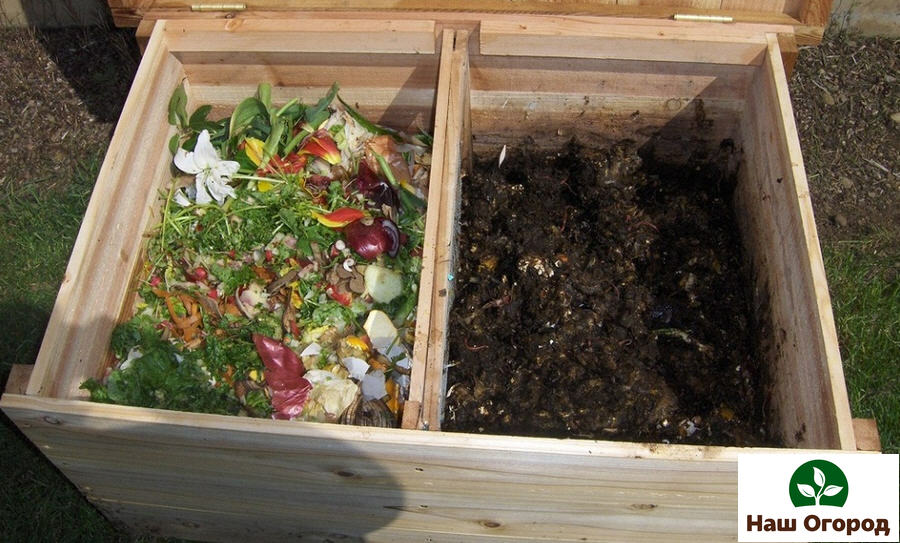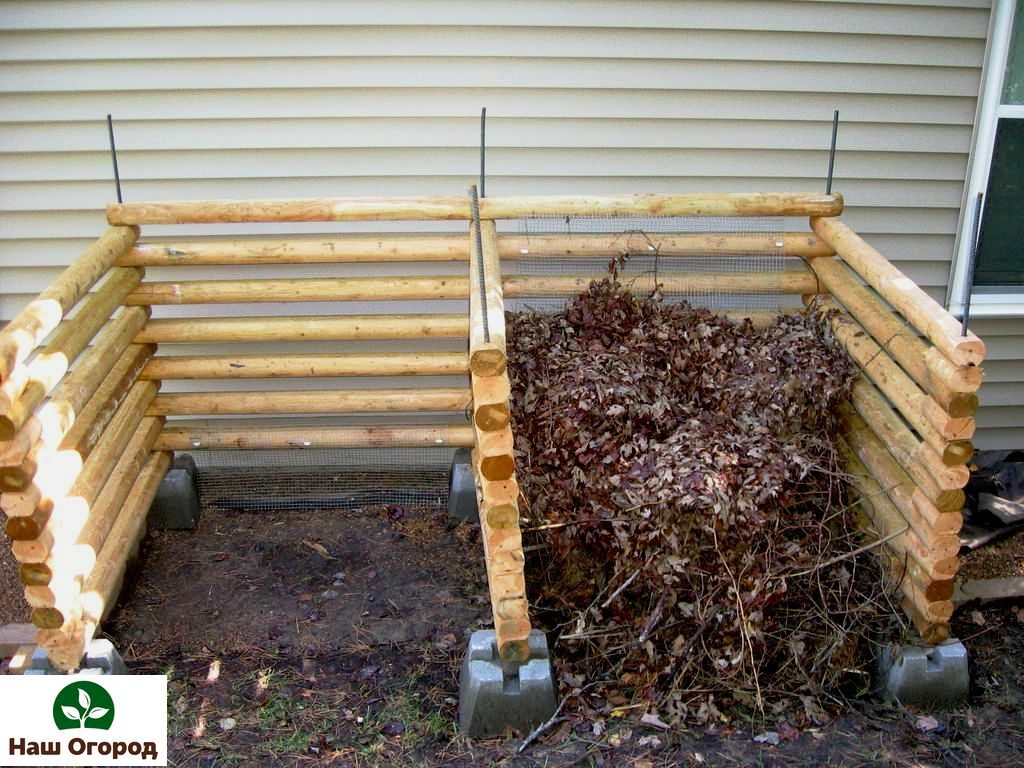Making compost with your own hands
Content:

Food waste is an excellent component for the compost heap,
What is compost.
Compost Is the best way to create fertile soil for your garden plants. What is compost and how to get it at your summer cottage?
Most have at least once seen a light fluffy bloom on rotten leaves, fruits, vegetables, berries, herbs and on the ground. This humus is a decaying substance necessary for the cycle of plants from emergence to returning back to the ground, this is up to 90% of the soil.
Compost - this is also humus, but created from foliage, weeds, grass and other plant scraps, as well as some food waste. It is formed by bacteria, fungi, insects, worms and other living creatures. To get healthy compost faster and more reliably, you need to attract them and supply them with food.
Compost and Site Selection.
The compost pit looks like a pile of rubbish and smells the same, so it is recommended to place it away from housing, areas often visited by households and the temptation of animals to dig out the contents and take them around the site. You will need a square hole at least 1x1x1 in height, width and depth - at the very least.
Compost and Variety of ingredients.
Bacteria and other creatures in the compost heap have different food preferences. Some consume higher carbon foods, such as leaves and twigs, straw, hay, while others prefer higher nitrogen levels — fresh green foliage and grass clippings, dung from cows, goats, horses or chickens.
Fallen leaves - An excellent source of carbon-rich material comes in abundance every fall. Keep dead leaves in a compost heap or tightly sealed in plastic trash bags, where microorganisms will begin converting them into valuable humus.
Food waste - great for compost heap, fruit and vegetable scraps, peels, coffee filters and tea bags, expired refrigerated food, eggshells (which decompose and release useful calcium).
Do not include meat or dairy waste, bread, fat (excluding seasoned salads), weeds with seeds, dead plants affected by pests or diseases, branches that are too thick in the compost. The droppings of dogs, cats or mice must not get into the compost.
Humidity.
Add water - the compost heap should always be well moistened, so water it without rain.
Oxygen.
Mix your compost frequently. Oxygen is needed for aerobic decomposition, reproduction, nutrition and productive work of microorganisms. Oxygen-poor compost breeds harmful bacteria, which stops beneficial decomposition and becomes a source of unpleasant odors.
Such compost will not benefit the soil. Turn the compost mass with a garden pitchfork as carefully as possible - in addition to oxygenation, this crushes large clods.

Fallen leaves are an excellent source of carbon-rich material.
Acceleration.
Add bacteria formulated specifically to speed up the decomposition of the compost heap. If there is a waste disposer, recycle it for faster decay processes.
The time to create good quality compost will depend on the climate and weather (the process slows down or stops in cold weather, and when the heap dries up), the mix of ingredients, your efforts, and many other factors. Start checking the readiness of the contents after about 3-4 months.
The finished compost can be recognized by its appearance - it is dark brown and fluffy, the mass is almost uniform (with a few exceptions), it is not recognized as leaves, stems or peels.
By smell - it should have a clean earthy smell, rotten foliage or hay. By inhabitants - it should contain earthworms, centipedes and other insects.
Some gardeners sift the compost to a fine texture using a special compost sifter, since the finer it is, the easier it is to fertilize the soil. Large sticks and pieces of wood may not break for years; large pieces of compost can be left to decompose.
If possible, make a compost pile as large as you can mix regularly. A larger volume maintains a larger population of bacteria and fungi, and also maintains high temperatures more effectively.
A large, moist, oxygen-rich pile of fresh compost can actually start to smoke a little - in the early stages, rapidly multiplying bacteria generate heat as they feed. A pile of compost heated to 70 degrees will neutralize weed seeds or pathogens.
Many summer residents make three compost pits. One is "flowing", replenished with waste, the second is filled and melted, the third is ready to use as fertilizer.
Compost is not only a preparation of useful fertilizer for your site, it is also waste disposal and respect for nature.

